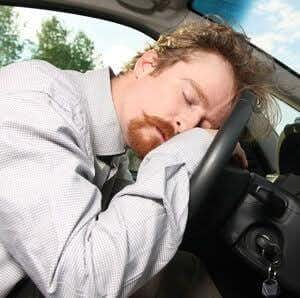
Are you guilty of drowsy driving? Most of us are at one time or another, but driving when you are too tired can be more dangerous than you realize. Inadequate sleep makes drivers far more hazardous on the highways.
The AAA Study:
A new study from the AAA Foundation for Traffic Safety reveals that losing as little as an hour of sleep can impair attention, slow reaction time and reduce accuracy. The researchers used data from the National Highway Transportation Safety Administration (NHTSA) covering approximately 4,600 traffic accidents. They found that drowsy drivers were responsible for one-fifth of the fatal crashes they studied.
How Dangerous Is Drowsy Driving?
Compared to the recommended seven hours of sleep, drivers getting less sleep were at elevated risk. The problem is difficult to study, however, as there are no markers for fatigue behind the wheel. That is a contrast with alcohol impairment, which can be documented with a Breathalyzer.
Those getting four or fewer hours of sleep were 11 times more likely to crash their cars. Their impairment appears to be equivalent to that induced by blood alcohol at 0.12 percent. Driving drowsy is as risky as driving drunk.
AAA Foundation for Traffic Safety, Dec., 2016
What About Sleeping Pills?
While some people get too little sleep because they are busy doing things, others suffer from insomnia. Will sleeping pills resolve the problem?
Sleeping pills may allow individuals to get some shut-eye, but they can also lead to next-day drowsiness. People who take a medication such as diphenhydramine (DPH), whether for insomnia or for allergies, should not drive under its influence. A study using a driving simulator found that DPH impaired driving even more than alcohol (Annals of Internal Medicine, March 7, 2000). You can read what we wrote about that study here.
If you would like to learn more about sleep aids and nondrug approaches to overcome insomnia, you may be interested in our newly revised Guide to Getting a Good Night’s Sleep.

